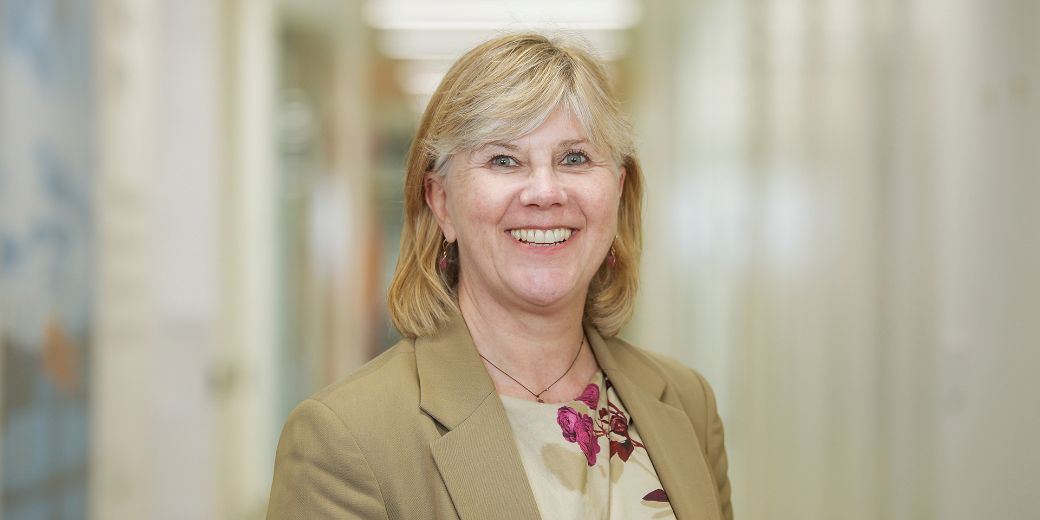There might be light at the end of the tunnel, but it ain’t here yet.
The career SRI specialist keeping Jupiter on message

Latest Newsletter
Value stance rewards managers with first AAA rating
The year comes to a close with a host of managers gaining their AAA wings.
Real Life: A cheaper, smarter way to fly business to the US
Companies are clamping down on travel costs. Here’s how to travel in comfort while keeping the expenses department happy.
Community
With responsibility for coordinating the group’s ESG strategy, Sandra Carlisle’s role at Jupiter was new this year. She joined from HSBC Global Asset Management, where she was head of responsible investment. If that title sounds familiar it would be because Stuart Kirk, whose remarks about climate change – including the now-infamous question: ‘Who cares if Miami is six metres under water in 100 years?’ – saw him acrimoniously suspended before resigning, was its global head.
Carlisle left several months before the fateful Financial Times conference speech, but at the time gave her reaction to Citywire, saying it was important ‘not fall into the trap of thinking that if we ignore something, it will go away.’
On her arrival, Jupiter also created an ESG investment director role, focused on integrating ESG factors into investment processes, and, according to its annual report, added resources to its stewardship team, ‘including hires with backgrounds in corporate sustainability, climate risk and ESG fixed income’.
In her newly created role, Carlisle’s responsibilities extend beyond the usual ESG corporate blueprint, instead delving into Jupiter’s public goals and commitments, and its alignment as ‘a responsible business and a sustainable investor’.
‘If there are any conflicts, how would we manage them? Because as you might imagine, an investment team’s view about the sustainability risk in a certain security might be offset by the risk-adjusted return they see,’ Carlisle says. ‘And we have to make sure that whatever that opportunity is, it isn’t conflicting with who we are as a responsible business and the statements and commitments that we’ve made.’
Carlisle’s appointment and the creation of a corporate sustainability team was part of Jupiter’s three-pronged approach to sustainability: corporate stance and strategy; integration within the investment process; and ESG and sustainable investment products.
Jupiter joined the Net Zero Asset Managers Initiative and set an interim 2030 decarbonisation target for 41% of its assets. It has become a member of the Good Work Coalition and the Finance for Biodiversity Pledge – and it expanded its global sustainable equities offering to international clients with the launch of the Jupiter Dynamic Bond ESG and Jupiter Global Ecology Bond funds.
Carlisle’s industry experience spans more than 30 years, and her lineage in sustainable investing dates back to her spell at Citigroup from 1998 to 2008, where she worked in what her profile describes as ‘specialist sales’ covering SRI and sustainability.
ESG still needs specialists, but it is now applied widely. This world is a far cry from 2005, when she was told ESG was ‘just ethical exclusion that no one cares about’.
‘Not everybody will agree, but you got to think about interest rates, you got to think about inflation. You’ve now got to think about the climate. You’ve got to think about biodiversity. You’ve got to think about social equity as well. This was not mainstream thinking in 2005’.
The genesis of her interest in sustainable investing came from her attraction to difficult problems, including that of fairness, between companies and people, the northern and southern hemispheres, and the West and developing nations.
‘Maybe it’s because I’m mad and I like doing things that people don’t want to do, but I’ve always been interested in thinking about issues around climate change and looking at issues around social equity. And always being willing to put my hand up for the crazy thing, the thing that other people have said: “well, this kind of needs doing, but nobody wants to do it, or this is an intractable problem, or here’s a big challenge, we need someone to fix it”.’
Carlisle approached Citigroup with what she described as a ‘bonkers business plan’, to create a sustainable investment team.
‘I said to my boss, give me two years and I’ll demonstrate that this will work, and we can create a successful business. I was very lucky because even though it was a bonkers idea and everybody said: “Don’t do this. Why would you do this?”, he said: “Go for it. You’ve got two years.”
Timing is everything. Carlisle found herself ‘at the cusp of that long emerging wave of interest which has just grown and grown’.
Luckily, there were some investors willing to reward asset managers who were talking about more than just financial returns.
‘This was pre-PRI [the UN Principles for Responsible Investment], but there was an initiative which some asset owners and asset managers at the time launched, which allocated a certain pool of their broker commission, their research commission, to ESG issues and themes.
‘Without that opportunity, I’m pretty sure I wouldn’t have got the “yes” to go ahead. There were some progressively minded investors at the time and we captured that wave.’
Globally, it is expected that by 2026 ESG-related assets under management will have increased to $33.9tn, nearly doubling from the $18.4tn of 2021, according to PwC.
And with this dramatic increase has come a response in kind from regulators.
The UK’s Financial Conduct Authority has recently published a brand new labelling system for funds. This adds to the EU’s SFDR regime, upon which hundreds of funds have been launched, relaunched or renamed.
Carlisle said it was important for asset managers not to lose focus of the purpose of regulation – no matter how painful and complex the process can be.
‘I often say, we’re driving along the road while we’re building the road. And we’re driving at speed. And that can be quite a hard thing to do.’
Regulation creates a ‘level playing field’, especially when dealing with different views, different geographies, layered environmental challenges, social complexities and governance issues.
‘If you looked back over the last 100 years when there’s a crisis, whether that was the Wall Street crash or when you had the international accounting standards put in place [in the 1970s] – or the financial crisis where you had all the bank capital adequacy rules [brought in]. In that context, you always get more regulation afterwards. Looking at it through that lens makes it easier for investors to understand what it is they’re investing in and therefore be able to say whether it makes sense for them or not. So, in terms of the transparency and disclosure and helping investors and that intentionality, it is a good thing.’
As a veteran of the industry – and as a woman – Carlisle says a raft of changes have transformed what was once a ‘monoline industry’. While not nearly as diverse as it could be, she says it is improving.
‘There has been the awareness that the asset management industry or the financial services industry is very closed. Everybody looks the same. When I started work, as a woman, you had to wear a suit – and you weren’t allowed to wear trousers. And I remember it was absolutely a revolution when I thought “I’m so bored with this” and wore a dress.
‘That was an outrage. And another day I wore trousers. That was just catastrophically disastrous. Wow, the world is going to collapse because someone’s come into the office wearing a pair of trousers! This kind of stiffness and rigidity has definitely gone, in a good way.’
Measuring impact
As the world looks back at the COP27 climate conference, many in the industry will wonder what tangible impact it will have, and to what degree investors are responsible for delivering that.
Carlisle said calls to action, whether over issues like global temperatures or water, will indeed lead to capital mobilisation, as the industry accepts the ‘move the global economy to a sustainable and equitable model.’
‘We are much more aware of the positive power of capital allocating. That can change behaviours and lives, and solve challenges. That’s at the heart of sustainable investment, that positive power of capital allocation and being able to stand proudly behind that.’
In official language, Carlisle’s success will depend largely on how the company’s sustainability performance is received both internally and externally – and whether key regulatory and policy objectives are met.
‘Success is like a stick of rock: wherever you cut through that stick of rock, you see the same thing all the way through. It’s the same message all the way through.’
Latest Newsletter
Amplify Issue 30: The fund groups topping the tree
We analyse which groups have had the biggest inflows and outflows in 2022, look at managers achieving their first AAA ratings, and hear from Rob Kyprianou on why regulation gets it back to front.
Amplify Issue 29: Red hot: 2022’s private market hiring spree
2022 has been a hot year for private markets, but are asset managers putting the brakes on their expansion efforts? Plus, we look at how the bear market has affected launches this year and look at how firms can better communicate their brand values.
Amplify Issue 28: Fill your ESG product gaps
We hear from fund buyers on what they’re looking for from an ESG fund, find out what Neuberger Berman is plotting in the alts world, and learn the winners of Citywire’s Gender Diversity Awards.
Community
